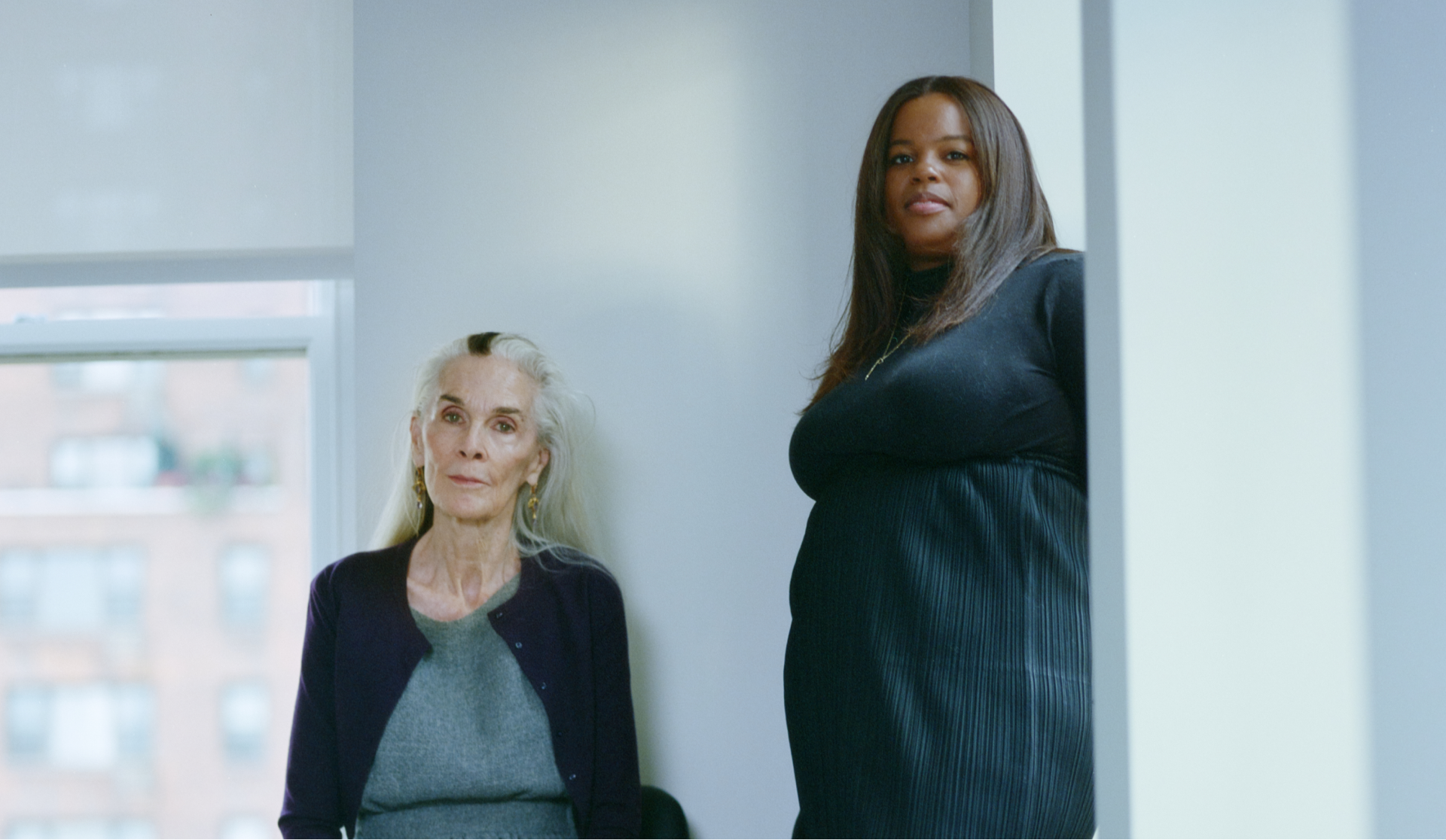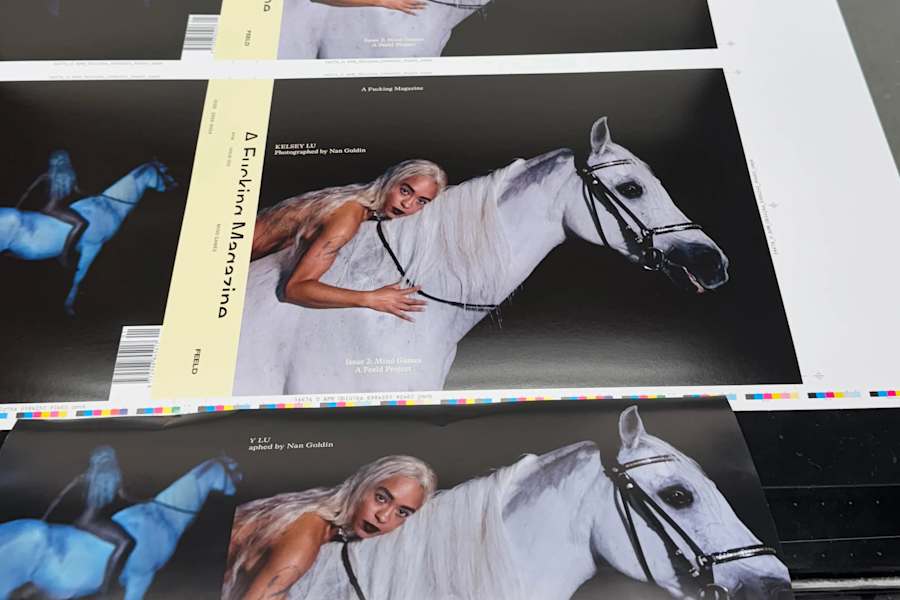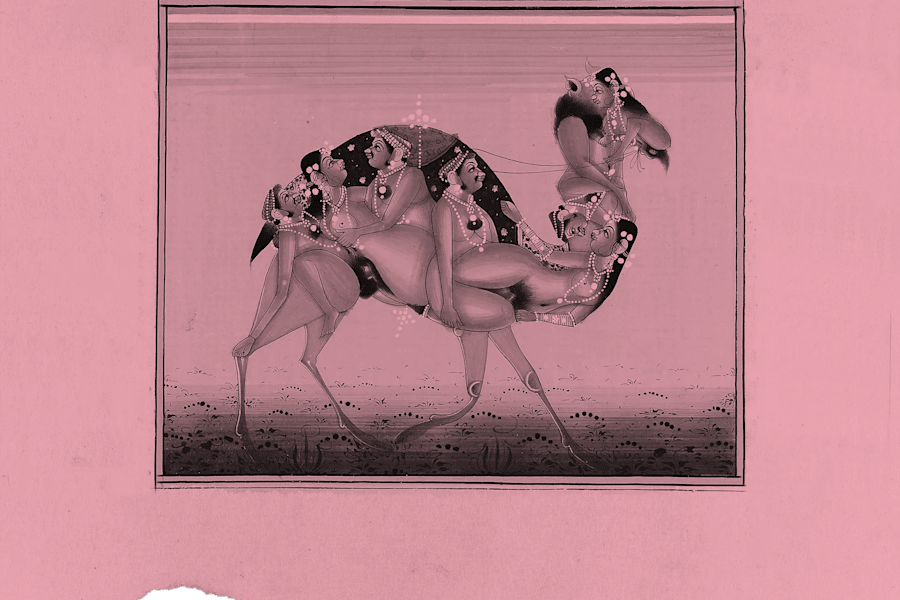
Photography by Heather Sten
“When I decided to write about sex, I decided to write about everything that is generally taboo.” Susanna Moore and Allison P. Davis discuss writing towards what too often goes unsaid.
Susanna Moore’s 1995 novel, In the Cut, was adapted into a film by Jane Campion in 2003. From the first time I watched it (also the moment it became my second-favorite erotic thriller) I thought: that, right there, is my New York.
The city, as written by Moore and brought to a controversial cult classic status by Campion, was cinematically seedy and scary, dark and dangerous. Because we saw it all through the curious, insatiable, eyes of Frannie (in the film, played by Meg Ryan, in a real departure from her previous sweetheart personas), Manhattan existed as a backdrop for sexual adventure. Did that sexual adventure start because of a murder? Yes, but this New York was the perfect environment to untangle the shadows of one’s own desires, and to accept how often the need for a hot, self-erasing, no-holds-barred fuck, brushes up against a fascination with violence.
With the novel as the source material, Moore’s writing is an even deeper dive into the interior world of a woman so horny, so motivated by her own want, she'll do anything to satisfy it, no matter how socially inappropriate. Frannie pursues pleasure recklessly, uncompromisingly, and, dare I say, admirably. Moore’s novel is the book that reshaped how I personally think, talk, and write about pleasure and sex.
While the New York of Moore’s novel was a dangerous place for a woman to pursue pleasure, the New York I met her in almost 20 years later is a different island. Moore and I spoke over tea on an ice-cold early spring day, on the penthouse floor of a brownstone in the West Village. A friend's place, she explains. Moore lives in Hawaii, where she was raised, but regularly teaches at Princeton, and this loft is her home away from home.
Moore, delicate on her feet, moves through the massive, sunny apartment, preparing to serve tea while I nosily poke at the things she’s brought with her from Hawaii. There are small decorative items, drawings from her grandchild, and then, of course, books—the ones she likes to reread over and over. Currently she’s revisiting a favorite, The Tale of Genji, for the fifth time. She tells me that she always finds it interesting, though “I have different reactions each time I read it. This time I've been a little less patient with Genji. He's very aggressive with women.”
This is something that happens when she revisits books. “As your experience changes and as you age, your views change, your tolerance, your patience,” she says. She cites a friend who just reread Anna Karenina, as an example. “She so surprised me by saying that this time she felt rather sympathetic to Karenin. I said: how could you? He’s so awful!” Her friend responded: “No, no. I rather saw his point. She behaves very badly.”
She goes to set the tea platter down the coffee table, looking for a clear space. “I’m going to put it on Genji,” she declares. We both agree he deserves it.
In 2019, In the Cut was reissued in the United Kingdom, and Frannie, who was once vilified for her sexual appetite, was re-read as a feminist hero, of course. This generation of readers experienced the scenes as empowering, rather than salacious. All of a sudden Moore, who has never written a sex scene since (and for that matter, has never once watched pornography, a fact that shocks her Gen Z writing students) became a reluctant horny hero. In the conversation below, which has been condensed and edited for clarity, we discussed truth, lies, fiction, reading, taboo, and, of course, happiness.
I’m sure you’ve had to talk about this a lot since In the Cut was reissued, but with the resurgence of interest [in the novel] I wanted to ask how it was for you, as a writer, to go back and read a landmark work. As a writer, how has your own book changed for you?
I don’t think it changed very much for me, but it changed for readers. When it was republished in England in 2019, it had a huge reaction from readers—mostly women—who were discovering it for the first time. Maybe they had seen Jane Campion’s adaptation or not. People claim that it ruined her career doing that movie, which is a bit unfair. But I was surprised and pleased that people would rediscover it. It took a long time; it was published in 1995, so it [took] 24 years for people to be able to read it and not be offended [by it], or to simply be aroused by it.
These new readers saw it as feminist, which I had not intended it to be. I think it had a lot to do with the sex. They saw the sex in the book as a statement of female power, which was not in my mind.
I had previously published what is called the “Hawaiian Trilogy,” which were three books about my childhood. I discovered that I was being seen as a woman’s writer, which irritated me.
It’s a curse.
It seemed limited and narrow. It meant I could write well about children and flowers and mothers. I thought, “what could I do next that would undo that perception?” I believed that if I wrote something that men usually write, a noir detective story, and added a lot of sex, it would help rectify the impression of me as a woman’s writer.
The sex was hard because I had never…well, first of all, it’s hard to write about what I think for anyone, and I had never written about sex. I did a lot of research, which is funny in retrospect. I’m a teacher, and my students absolutely cannot believe that I’ve never seen a porno movie, ever.
Never?
No. They think I’m lying. My students told me, “well, it’s not too late.” And I said, “No. For me, when I was your age, porno movies were naked white men in black socks. I know it’s gotten better.”
Instead I read a lot of what would be considered erotic literature. I looked at magazines, like Hustler or Playboy. And none of it helped. I decided that I would write about it in an extremely flat way without using any sensual description, not the way it smelled or tasted or felt, which tended to be not that interesting, usually. Predictable. As I wrote it, I just described what was happening. Apparently it worked.
I’m working on a book of essays about sex. And I find myself having to stop when I try and write a sex scene, or a scene about physical sex. I feel like I have to include all this flowery embellishment, and it sounds so cringey. I’ve never considered just…writing how people fuck.
I think it worked because the lack of description allowed people—women in particular, but men too—to place themselves in that, to identify it, to place themselves in the moment. I had a lot of letters. A woman wrote to me that she felt she should scold me because she read it on an airplane; she had an orgasm.
What?
I don’t believe her. But it is still a compliment. I’ve never done it again. In my last book, The Last Wife: A Novel, I wrote about desire. But I don’t want to write about sex now. I don’t know how anymore, or if I ever did. Perhaps in the past, it was just luck.
I’m curious, because obviously it wasn’t easy. For me, I often write to understand things I don’t understand. Even subconsciously, when I choose a topic, it’s because I have a question about it. When you were researching for In the Cut, were there questions about sexuality that you were hoping to answer for yourself? Or was it just full curiosity, to see if you could?
No, it was really to see how people did it, and what not to do in writing about sex, because I found that very interesting. There were clues as to what not to do. As I said, not describing what it felt like, smelled like, tasted like…it’s limited. There are not too many ways to describe it.
Something that is interesting is that it caused me a lot of…I wouldn’t say trouble, but it was problematic in regard to men I knew or men that I saw after In the Cut was published. There was an assumption that it was autobiographical, which it absolutely was not.
The other thing was that when I decided to write about sex, I decided to write about everything that is generally taboo. Female masturbation, for example. That was one scene in the film adaptation that people objected to, of Meg Ryan masturbating; it’s a subject that still makes people uncomfortable. That was just one part, though—I wrote about anal sex, handcuffs, mild sadomasochism.
When I was rereading it recently, I sent all my friends a screenshot of the passage where you discuss how women will talk about anything except how they fuck themselves. I was like, yes! We need to tell each other how we masturbate!
There’s still tremendous shame attached to it. Also, I was very naive growing up. My Catholic grandmother raised me after my mother died, and I had no older sisters or cousins. It wasn’t until I was really quite old—in my thirties—before a friend told me that a boyfriend of hers was masturbating all the time. I was completely shocked. I thought men stopped masturbating once they got out of college, or the Marine Corps, or something. Where did I get that idea? And I thought that women, of course, continued, but it was kept a secret.
The way the book got me in trouble was that men who assumed it was autobiographical thought that I was game. Or they treated me like one of the guys. I had exchanged my femininity for a kind of masculinity, in the way In the Cut objectified women as they are in the book. And so men thought they could talk to me that way.
Also, it feels like a misreading of why I think women my age responded to the book when it was reissued. It didn’t feel like Frannie was objectified. She felt curious and hungry and deviant and dark.
No, but she was objectified by the men and other women in the book. The characters talk about women in the most odious—sometimes funny—but horrible way.
This is a question I’d never want to be asked myself, but sorry, I’m asking you. Sometimes, after I publish something I think about how I would rewrite it, with some different knowledge, in the current world. Is there something about In the Cut that you would change?
Yes, there definitely is. Some readers, usually men, believed Frannie was trying to get herself killed. I so did not mean that. I was really shocked to discover that. I would change that. I would make it, as subtly as I could, clear that she’s not trying to get killed.
I never felt that. That’s interesting that people projected that reading.
They had to think it. And also, they were excited by it.
That’s very dark. But I guess it goes hand-in-hand with the idea that women need to be punished for their desires, or subconsciously want to be punished for their desires. Which says a lot about the cultural psyche of the time, and still [does] today. But when you feel that people misinterpret your work, how do you close the gap between what you intended and how people take your intentions? Is it even possible?
You can’t, really. You can’t rewrite the book. And I don’t think you want to spend the time after the book is published explaining what it was that you really meant or why people are wrong. I mean, in an intimate, personal way, you can say, “That’s absolutely not what I meant. Why do you think that?” But I don’t think you can in a general sense. You have to assume responsibility. I assume it was my fault that I did not make it clearer. It was a failing on my part. I should have intuited or understood that that may have been how her behavior would be interpreted. I try to teach my students this: if someone isn’t getting something, they might be wrong about what it is that’s off, but it’s never their fault.
It’s hard when you’re close to it, to get that macro view. I know you said you’ve never written another sex scene again, which I think is so curious, because you’re so good at it. Is that decision simply because of the response to it?
Was I that good at it, or was it just that it was new? Or maybe it was both that I was new at it, and it hadn’t really been written that way by a woman before. I’m not saying that I have a false modesty either. I don’t know if I was good at it.
Well, I think it’s two things: you thought a lot about the way in which you wanted to write about sex, and not what it meant, or the statement behind it—you thought a lot about how it should sound on the page. I think that is different.
Also, it’s instigated by the woman, almost always.
Which is huge, still! Even in romance novels—which I read too many of—sex is often started by the man and the woman consents. I feel that you got this emotion about women’s desire that other writers try to [get], and fail at, over thousands and thousands of pages. You have the range of feeling, but also the hunger. I think you’re good at it.
One of the themes of the book, which makes it so dark is: they’re going to get you either way. There was a kind of defiance in In the Cut, and I remember being that way when I was young. Frannie, in the book, is someone who is refusing to adjust her behavior in order to accommodate men’s violence. There’s a lot of In the Cut that’s about refusing. Frannie is refusing to be ashamed. And her sister, who is killed, is someone who absolutely decided under no circumstances will she be apologetic or ashamed; she is more aggressive.
I changed what I thought about that over the years, in part because I had a daughter. Now I think, “don’t take chances. Don’t feel the need to prove your independence, or your selfhood, in that way, because you’re going to lose. Find another way.”
Frannie is still defiant about not succumbing to male power, which is really crazy. The other thing that happened to me was that I was working as a volunteer teacher in prison, and also at a woman’s shelter. The shelter was so horrible it was eventually closed. I became more fully, and more graphically and in a way scientifically, aware of male violence towards women. That provoked the book too; that was a big part of it.
It almost seems opposing to want to write about sex when you also want to write about this horrible violence you were witnessing. I mean, could you sleep at night when you were writing?
It was during a period in New York where it was a little more dangerous. Yes, I could sleep. The hard part was the end. I never imagined, or intended, that Frannie would die. Of course, I break a number of rules. If one of my students turned in a manuscript in which the narrator is dead, I would fail them, or certainly call them into my office to talk about it.
When it became clear that Frannie would be killed, I remember bursting into tears. It was Thanksgiving, and I was by myself, and I had been walking around for weeks trying to understand how to end the book. And I tried all sorts of ways to avoid it, like Cornelius arrives on his bike, or Malloy turns up because he suspected his partner and [had] been following him. I even tried to go back and change it so that it wasn’t in the first person, but if it wasn’t in the first person there was no mystery. None of it worked. It was so anti-climatic.
I love that you tried to save her. I always wondered if that’s why she survives in the movie adaptation, or if that was just a necessary Hollywood ending. Did you have much to do with the adaptation?
I’ve spent some time in Hollywood, and I was married to a production designer, and learned very early that the last person welcome on set is the writer. And one can see why; I learned that you have to give it up. It becomes something else. It was in Jane’s hands, and she could do whatever she wanted. I would help her, if she asked. And it was easy to stick to that because, of course, it was Jane. I don’t think I ever went to set. I would meet her afterwards or maybe go at lunch, but never [go] on set on purpose.
That’s so thoughtful of you…I wouldn’t be able to ignore the siren song of seeing Meg Ryan mid-performance.
And Mark Ruffalo. Of course I had a crush on him.
Such a babe.
He’s so good in it, isn’t he?
I know you never meant it as the feminism that people [are] picking up on now. But why do you think it lands with such a feminist tone now?
Well, it is very feminist, and oddly, despite my intentions. It was clearly what I thought I was up against. What a woman has to do to find her way in the world, whether it was sexually or intellectually or professionally. Perhaps I was a secret feminist and didn’t know it. I was having dinner recently with two women older than I, and they both said that they weren’t feminist because they had no complaints. I remember walking home and thinking, but it wasn’t about you. What do you mean, you had no complaints? No, most of us didn’t, but it wasn’t about those of us [who didn’t]. I was really disappointed. It made me think less of them. How self-centered, to not see that it wasn’t about you.
I can see why Susan Sontag wrote rather vehemently against it. I remember Joan Didion being a little dismissive of it. It was very hierarchical and quite elitist to the whole feminist culture. But I think a lot of political movements were like that in the beginning. I don’t think it’s a fair criticism; as an observation, yeah.
Joan and I once were sitting at a table and I was talking about feminism. My arms were on the table and I was trying to make a point. And she bent my arm and said, “Don’t talk to me about feminism. As long as a man can reach over and break your arm like that, I don’t want to talk about feminism.” And I said, “But that’s exactly why we are talking about it. That’s the whole point.” She said she didn’t want to hear it.
Frannie is a little bit of a hero of mine in the way that she seems to be like, “I’m going to pursue what I want to pursue.” And it’s not happiness that drives her, but it is desire, and a freedom of shame. I sometimes feel like women can’t win. Even our most silly desires, we’re ashamed of them.
But it did make me wonder about the characters in your books, and even the “you” in your memoir. Do you think that the people you write about are happy? Or is that even an interesting way to think about them, in terms of character development?
I think in some of my books there is happiness. You can have happy characters, perhaps. Or a good character. But people have said to me—women, usually, and I’m grateful there haven’t been too many—“Why don’t you write books about nice, happy people?” And without wanting to give them a lesson in literature, I’ve said, “Well, it doesn’t make for a particularly fascinating book.”
I wonder if when you pivoted to memoir there was any part of you that was nervous about how you would be interpreted on the page, as yourself and not as a character.
I knew that some people might take offense at what I was writing, because they just do. I mean I don’t, for example, read any Amazon comments.
Smart.
They tend to be so nasty. They’re anonymous so they can be personal.
Putting yourself out there, in your memoir, is terrifying.
I wanted very much when I wrote it not to write about victimhood. I wanted it to be clear that my life was one of privilege, and one for which I was grateful. I didn’t ever want to be any part of “Poor me, this is horrible.” My life wasn’t great always. I made a lot of mistakes, but I wasn’t a victim.
My editor, and some other people, want me to write more, but I’m not going to.
Why not?
I just think it’s enough. It’s ok. Also, there are things that happened in life that I can’t quite write about. Not guilty pleasures, just guilty. Some friends have said, “But that’s just what people would like to know about, about bad marriages or bad decisions.” And then someone asked me if it’s ok to lie in a memoir, to which I said, absolutely not. You can leave things out, but [you] can’t lie.
Allison P. Davis’ Top Four Erotic Thrillers, Ranked:
- Poison Ivy (1992)
- In The Cut (2003)
- Unfaithful (2002)
- The Crush (1993)


